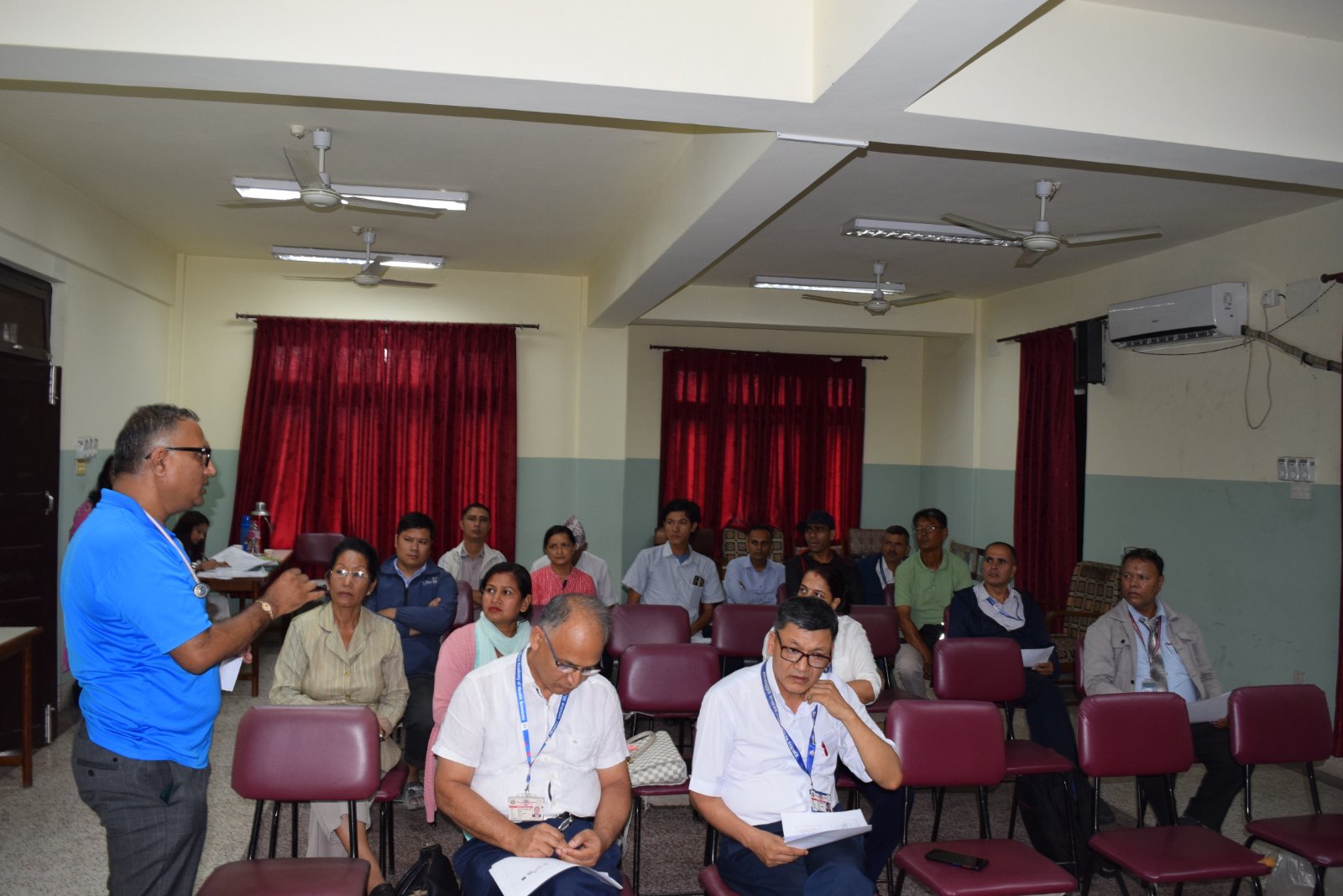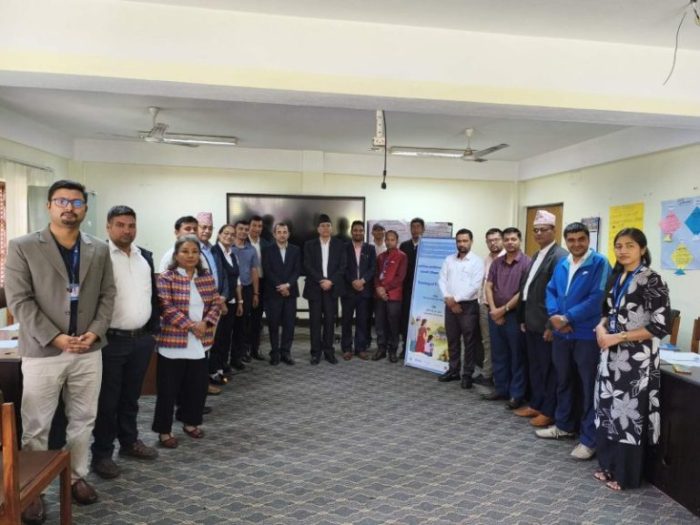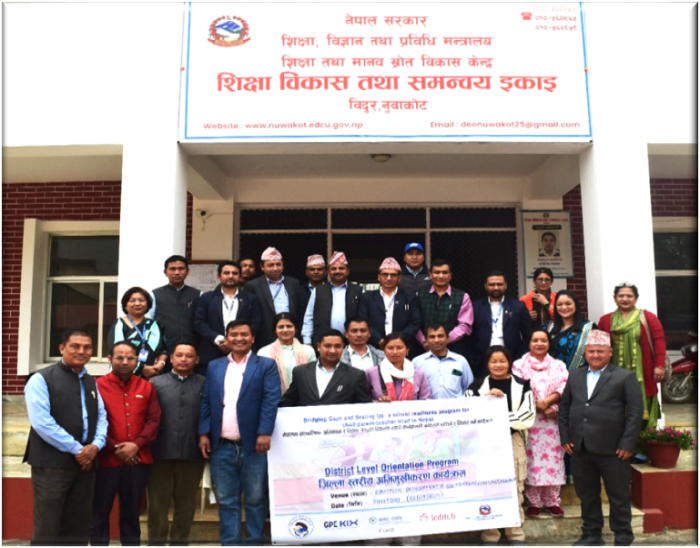The FINE-DDD research project aims to determine the prevalence of developmental delays and disabilities (DDD) in children in Nepal who have received medical interventions for birth complications, and to co-design a family-centered intervention for children and caregivers with the active participation of participation various stakeholders from both the demand and supply sides. The research project is largely based on community engagement and a multi-disciplinary team approach.
In FINE-DDD, a cohort of children born in WRH with DDD identified by the Malawi Developmental Assessment Tool (MDAT) from 6 months up to 3 years of age were assessed by a team of trained research assistants for developmental and cognitive assessment, pediatricians from Western Regional Hospital (WRH) and physiotherapists from WRH and Green Pasture Hospital. The assessments and medical examinations were carried out at the Golden Community (GC) office, the hospital and the outreach center. Only a few were conducted during home visits. The research project also included in-depth interviews with primary caregivers of children with DDD. Field observation, interaction with caregivers and the data will be part of the co-design process.
Process
Senior monitoring and evaluation officer started the orientation by welcoming all the participants and thanking them for taking time to participate in the program.
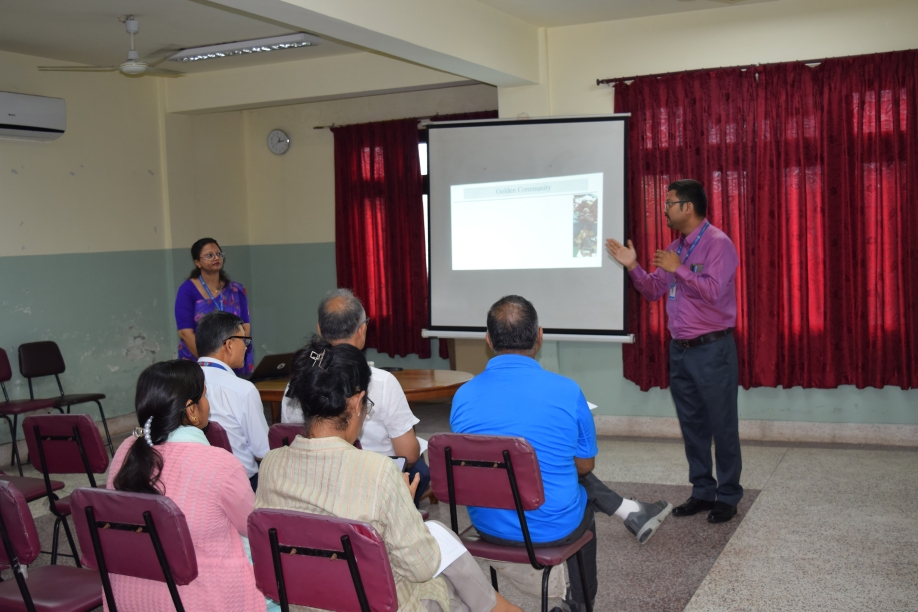 Field coordinator presented GC and its activities conducted in Kaski district from 2016 to 2024 including the objectives of the FINE-DDD project and the activities carried out to achieve the objectives.
Field coordinator presented GC and its activities conducted in Kaski district from 2016 to 2024 including the objectives of the FINE-DDD project and the activities carried out to achieve the objectives.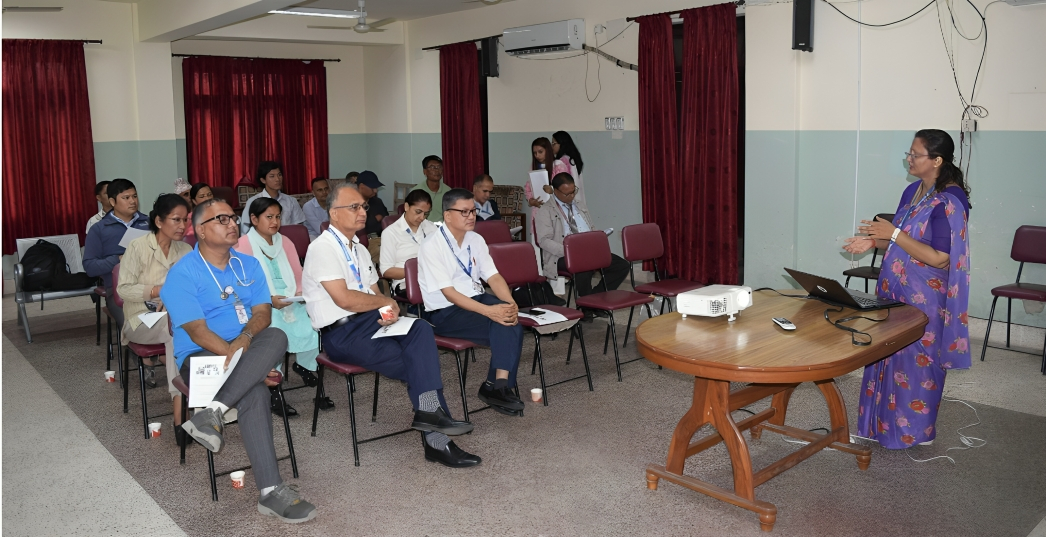 HOD of Western Regional Hospital introduced GC, its collaboration with Pokhara Academy of Health Sciences (PoAHS) on tracking births at the hospital including children with complications at the time of birth and children with no complications.
HOD of Western Regional Hospital introduced GC, its collaboration with Pokhara Academy of Health Sciences (PoAHS) on tracking births at the hospital including children with complications at the time of birth and children with no complications.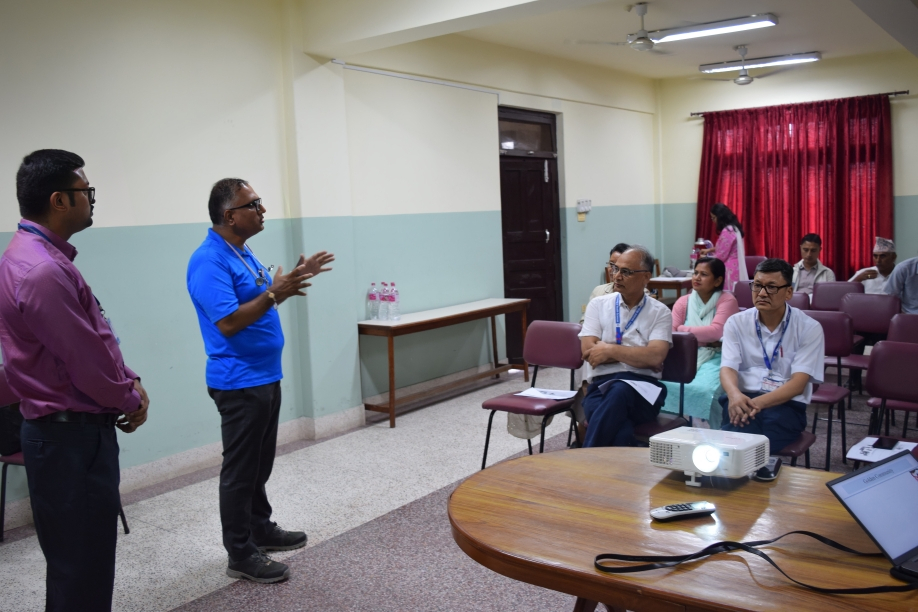
Interaction with stakeholders
The chairperson of the Child Welfare Scheme Nepal suggested that a caregiver focused intervention such as peer group creation should be implemented and said that such program will facilitate caregivers to share their experiences and vent their feelings.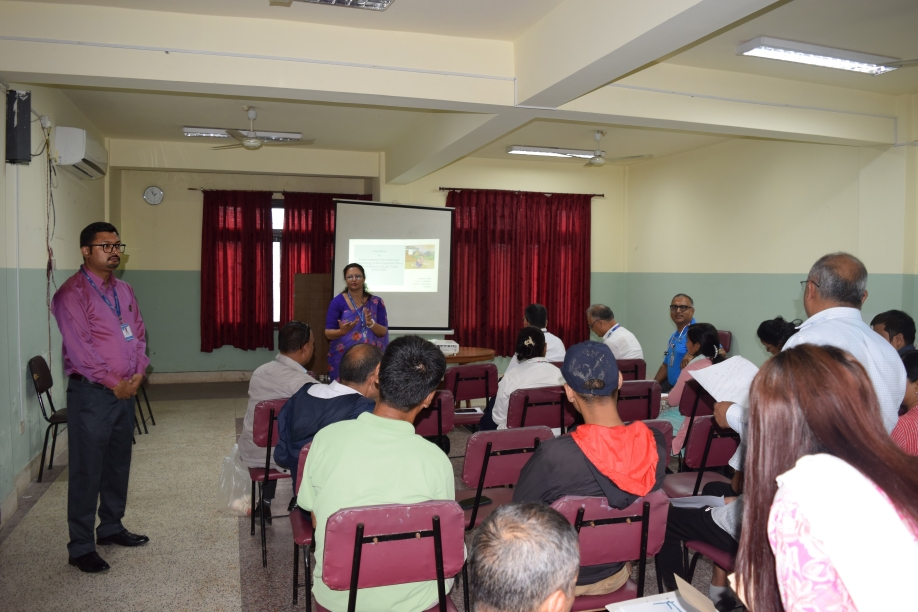 Dean of (PoAHS) concluded the program with a request to support children with disabilities from their own level and capabilities as it requires efforts from each and every sector.
Dean of (PoAHS) concluded the program with a request to support children with disabilities from their own level and capabilities as it requires efforts from each and every sector.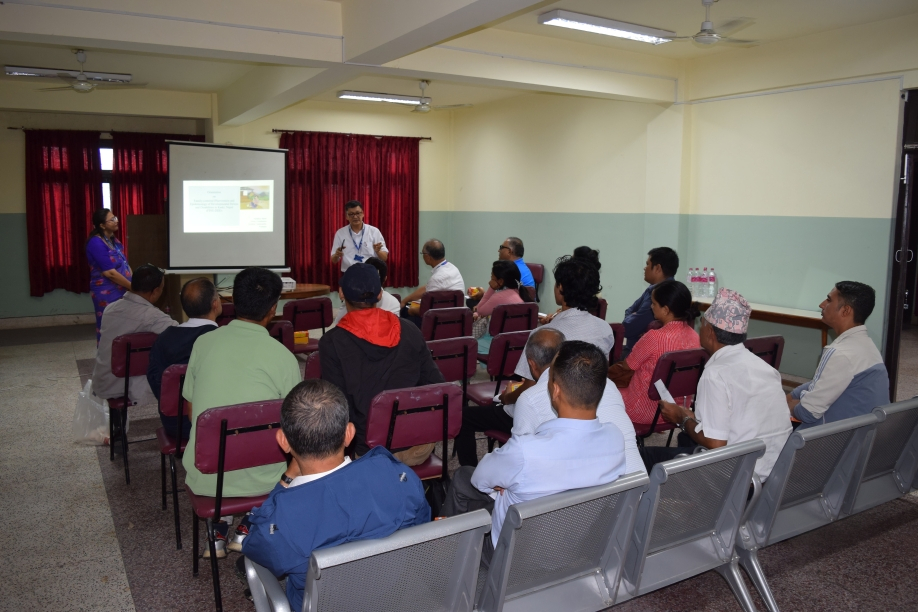
Conclusion
All the participants invited to the orientation meeting attended the event. Overall, the program was interactive and provided the organizer with additional information about the participants for the co-design workshop. It also gave a hope for an effective co-design workshop in the future, as the management- level participants showed their commitment to collaboratively co-designing of the intervention for children with DDD.
Annex
Table. List of participants
| S.N | Affiliation | Position |
| 1. | Pokhara Academy of Health Sciences. | Dean |
| 2. | Pokhara Academy of Health Sciences. | Director |
| 3. | Pokhara Academy of Health Sciences. | Head of Department, Pediatrics |
| 4. | Child Welfare Scheme Nepal | Executive Director |
| 5. | Parent Association of Person with Intellectual Disability, Kaski. | President |
| 6. | Kudahar basic School. | Principal |
| 7. | Sunaulo Bihani Kaski (Brain paralysed self-defense Guardial group) | Co-ordinator |
| 8. | Sathi sansar Nepal | Program Manager |
| 9. | Community Based Rehabilitation Society | Program Manager |
| 10. | Srijana Deaf School | Principal |
| 11. | Education Development and Co-ordination Unit | Co-ordinator |
| 12. | Shree Saraswati Tika Secondary School | Assistant Principal |
| 13. | Fulbari Montessori | Founder, Principal |
| 14. | INF (Green Pastures Hospital) | Nursing In-charge |
| 15. | Municipality Disability network | Member |
| 16. | Municipality Disability network | Member |
| 17. | Pokhara metropolitan Social development Office | Director |
| 18. | Pokhara metropolitan Social development Office | Officer |

